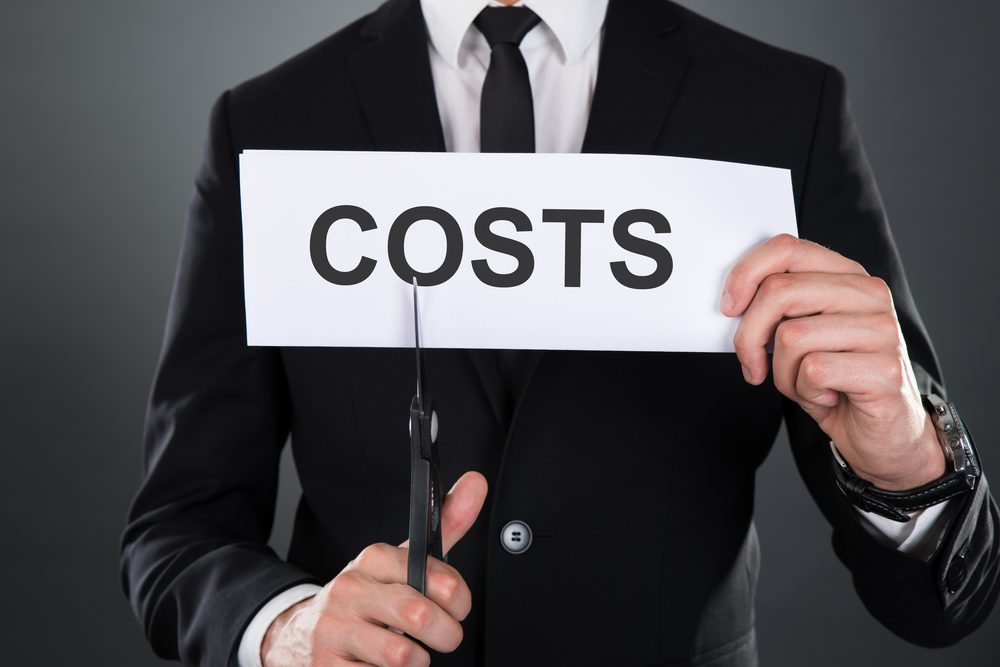If you have found yourself short of money and have a lot of trouble getting back on your feet, there is a way to fix things, but it is not going to be easy.
If you are going through financial hardship, you should know that there are steps that you can make to help your situation no matter what the source of the hardship is. It is never easy, and there is a lot to do, but going into survival mode (financially speaking) and prioritizing properly can be more of an asset than you have expected.
If you need help, feel free to go through these three steps and find a way to get out of the unfortunate situation.

Ariya J/Shutterstock
Prioritize spending
Living on a ridiculously low budget is never a choice, but if that is the situation you are in, you need to take a deep breath and go through all of your income sources and expenses to make a plan of spending until you get back on your feet. So, how do you prioritize?
Bills
 When it comes to your bills, you should know that there are some that can, and some that absolutely must not wait. Those that would negatively affect you directly are the ones that should be paid first. Those would be your rent, utilities, taxes, and insurance. Since they are essential, the government has set up ways for people with financial hardships to manage the expense.
When it comes to your bills, you should know that there are some that can, and some that absolutely must not wait. Those that would negatively affect you directly are the ones that should be paid first. Those would be your rent, utilities, taxes, and insurance. Since they are essential, the government has set up ways for people with financial hardships to manage the expense.
You can try to contact the IRS to get a monthly repayment schedule for your taxes, and most utilities offer similar services. Also, it really wouldn't hurt to cut any current non-essential bills. This includes your gym, cable, and (if you do not need it for your work) your Internet access. If you cannot remove it from your everyday life, try contacting the provider to negotiate better prices. At least for some time.
Additionally, you definitely shouldn't be shy to switch operators or banks if they offer better rates.

Andrey_Popov/Shutterstock
Recognize the biggest expenditures and cut them down
For most people, the biggest monthly expenditures are housing, transportation, and food. So, pay attention, and try to cut down any unneeded expense when it comes to these.
Housing
We know how dramatic it seems, but you should genuinely consider moving to a cheaper location or into a smaller housing until you can get back on your feet. However, if moving isn't really an option, try freeing up a room in your house and rent it out to earn some money back.
Transportation
Having your own vehicle is very nice and all, but if you are not earning money from using it, it is probably the right time to either sell it or just save the gas money and take the bus. If you have two cars, well, it's obvious, sell the other one.
Food
Multiple online guides teach you how you can eat well for only a dollar a day per person, and, yes, it involves extreme couponing. Even if you believe you couldn't, or do not want to use extreme couponing, there are ways to supplement your grocery trips. Consider food banks and alter your diet. Here is a short guide on how to do that.
- Start focusing on inexpensive, nutritious foods
Brown rice, beans, eggs, veggies, and definitely, potatoes. Basically, try to follow the reasoning behind so many various peasant diets from around the world.
- Buy items when they are on reduced prices for clearance
A lot of stores will offer a 50% discount for foods that are nearing their expiration dates and these foods can be just what you need. Also, you should find out when your nearby stores send foods to food pantries so you can visit the pantry the following day.
Find new ways to generate income or cash

DiMedia/Shutterstock
This sounds obvious, but we need to put it out there. To fight a financial problem (and these mostly come from losing a job or having unexpected expenses), you will need to earn more money. So, how can you do it?
Extra work
Finding temporary work is important, and you have to be relentless in looking for more income. It doesn't matter what you find - tutor kids in math if you are good with it, babysit a child, even run errands for a day to day payment.
If the cash is needed right away, try selling some of your stuff online to bridge the gap to your next paycheck. Also, do not be ashamed to seek government assistance, or, alternatively, assistance from a non-profit organization.
